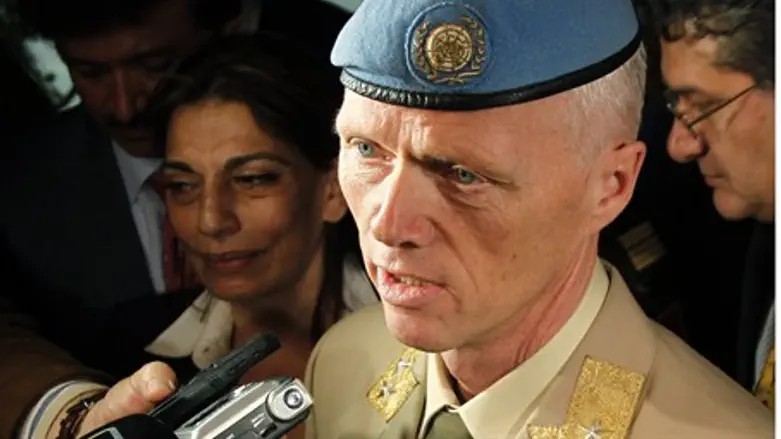
The head of the UN observer mission to Syria warned on Sunday that even 1,000 unarmed observers could not end the violence in the country on their own.
Arriving in Damascus, Maj. Gen. Robert Mood urged all sides to cease fighting and said peace must be a joint effort, according to a BBC report.
Mood will be followed by another 30 observers in the coming days, doubling the size of the mission. The UN has approved up to 300 observers.
“Ten unarmed observers, 30 unarmed observers, 300 unarmed observers, even a thousand unarmed observers cannot solve all the problems,” Mood was quoted by the BBC as having told reporters as he arrived at Damascus airport.
“To achieve the success of Kofi Annan's six-point plan, I call on all to stop the violence and to help us on a continued cessation of armed violence in all its forms,” he added.
The so-called “truce” that allegedly began April 12, as part of Annan’s plan, has been largely ignored by both sides. The government, which was to withdraw its military hardware and forces from residential neighborhoods and other populated areas, has done neither. The rebels have likewise continued their ambushes on government forces.
Nearly 10,000 civilians have died in the uprising that began in March 2011, according to human rights organizations and some estimates by the UN.
The violence continued on Sunday, the BBC reported, with activists saying that at least 25 people were killed across the country. The activists said that at least 500 people have died since the ceasefire began.
They added that shelling continued in several provinces, and that two people were killed by snipers in the city of Homs. Violence in Homs, a hotspot in the uprising against President Bashar Assad, has fallen after two UN observers were permanently stationed there two weeks ago.
Mood said, according to the BBC report, that the ceasefire could only work with the support of the forces on the ground.
“It's absolutely necessary to understand that this a joint effort,” he said. “The most important element is the Syrians themselves, the rights, the aspirations of the Syrian people. Then we have the observers on the ground - unarmed, representing the will of the international community, the will of the UN to be there with them. Then you have the political element between states in the region, and we have the diplomatic level on top.
“To reach a positive way forward, and we have that choice, all these elements have to play together.”
On Friday, Syria's exiled Muslim Brotherhood urged UN Secretary-General Ban Ki-moon to acknowledge that Damascus had failed to honor Annan’s peace plan and to suspend its UN membership until a transitional government representing the Syrian people is formed.
“We ask Ban Ki-moon to announce that Assad's government has failed to honor the peace plan and to declare the plan finished... at a time when dozens of innocent people are dying,” the group said in a statement issued in Britain.
On Thursday, Ban demanded that the Syrian government immediately comply with its commitment to withdraw troops and heavy weapons from cities and towns.
Also on Thursday, Turkish and French officials said they were mulling a potential military intervention in Syria if the violence continues.
